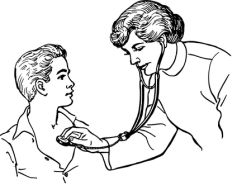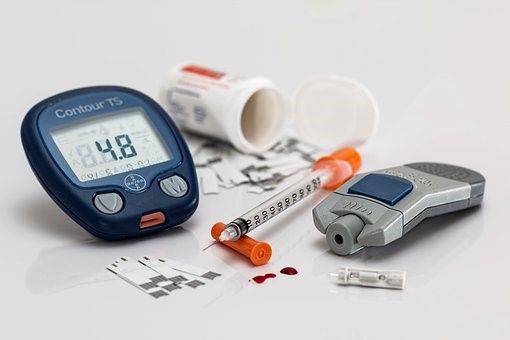Get to Know Yerba Mate — The South American Drink That Is Fast Becoming a Popular Health Trend

Yerba Mate is a beverage that has been gaining popularity in the health and wellness community in recent times. This tea drink is becoming a preferred choice for many due to its numerous health benefits and cultural significance. As its popularity spreads around the world, more people are choosing yerba mate over coffee because it has the same energizing effects without the harsh crash afterwards.
What is Yerba Mate?
Yerba Mate is a tea beverage made from the dried leaves of the Ilex paraguariensis plant. This plant is native to the subtropical regions of South America, particularly Argentina, Brazil, Paraguay, and Uruguay. Yerba mate has been an important part of the indigenous culture of South America for centuries and is still widely consumed to this day.
The origins of yerba mate can be traced back to the native tribes of South America. The Guarani people were the first to start cultivating the Ilex paraguariensis plant and using its leaves to make yerba mate tea. Soon, other tribes in the region also started using the plant and the drink became an integral part of their culture. It was used in ceremonies, social gatherings, and as a form of medicine.
Adaptogens
Yerba mate is loaded with adaptogens, which are substances that help the body adapt to stress and maintain balance. Some of the adaptogens found in yerba mate teas include Suma Root, Acerola Cherry, Ginseng, and Yanomami Mushrooms. These adaptogens help the body fight inflammation, boost immunity, and reduce stress. Let’s take a closer look at what each adaptogen does.
Suma Root: Also known as Brazilian Ginseng, Suma Root has a variety of natural health benefits. It is known to reduce inflammation, boost energy, and relieve anxiety. It is rich in vitamins and minerals including vitamins A, E, and K as well as iron and magnesium.
Acerola Cherry: These small berries are rich in vitamin C and have been known to help with flus, colds, and other sicknesses. It is an astringent that helps with skin elasticity and blemishes. It also aids in digestive issues and helps with diarrhea. Other health benefits may include reducing depression and enhancing athletic endurance.
Yanomami Mushrooms: Known for their unique flavors that enhance culinary dishes, this blend of mushrooms is a delicacy around the world. They are sustainably harvested in South America and have been used by the natives for generations.
Guarana: A small berry, native to Brazil, it has various benefits to consumers. Guarana contains caffeine and stimulates the central nervous system, resulting in energy boosts and mental focus. It is full of antioxidants that cleanse the body and help promote healthy digestion.
Health Benefits
It’s no surprise the natives were aware of the health benefits of yerba mate. Not only is it full of adaptogens, vitamins, and minerals to help the body stay healthy, but there are other ways it improves your overall health, too. Here are five of the most notable ones:
Antioxidants: Yerba mate is loaded with antioxidants, which help neutralize harmful free radicals in the body. Yerba mate has a high content of polyphenols. These antioxidants counteract free radicals that increase the aging process as well as restore cellular balance. These antioxidants help purify the body and eliminate harmful wastes and toxins.
Improves Digestion: Yerba mate helps improve digestion by stimulating the production of digestive enzymes, reducing inflammation in the gut, and regulating bowel movements. It is best to pair your yerba mate with fiber-rich foods to aid in healthy bowel movements.
Energizing: Yerba mate contains caffeine, which helps increase energy levels and alertness. At the same time, it also contains theobromine and theophylline, which help improve focus and mental clarity. It improves energy and focus, with effects like coffee but without the crash afterwards. It is healthier than processed energy drinks because the ingredients are all-natural and will not lead to the detrimental health effects of sugary, processed energy drinks.
Lowers Cholesterol: Yerba mate contains saponins, which are natural compounds that can help lower LDL (the bad) cholesterol levels in the body. Polyphenols and vitamin C prevent the accumulation of cholesterol in the arteries. It has also been known to improve blood pressure.
Improves Mental and Emotional Health: Yerba mate has been shown to have a positive effect on mental and emotional health. It helps reduce anxiety and depression, improve mood, and increase feelings of well-being.
Drinking Yerba Mate
With so many health benefits, it is no wonder the natives call it the “drink of the gods.” Yerba mate is a highly nutritious drink that has been gaining popularity in the health and wellness community around the world. With a variety of Yerba Mate natural energy drinks to choose from, it is no wonder this ancient treasure is gaining popularity among the Western culture. Whether you want to improve digestion, boost immunity, or increase energy levels, yerba mate is worth trying. Click here to know more details.
The Importance of Annual Physical Examination

Chances are if your family is like most, annual checkups and physical exams may not be at the top of your priority list. Although these visits often seem routine, they offer important advantages that should not be overlooked. An annual physical examination near me provides an opportunity to detect potential health problems in their early stages so treatment can start as soon as possible — which can make a huge difference for both you and your loved ones down the road. In this blog post, we will look into exactly why it is important to schedule regular physical examinations for yourself and your family members.
What is an Annual Physical Examination and why is it important for your health and wellbeing
An annual physical examination serves as a fundamental component in maintaining optimal health and wellbeing. This comprehensive check-up not only evaluates a patient’s current health status but also enables healthcare professionals to identify potential health risks and prevent the onset of chronic illnesses. By regularly scheduling these examinations, individuals proactively engage in their own healthcare journey, fostering a strong partnership with their physicians as they work together to elevate overall wellbeing. Moreover, the data gathered from these assessments helps establish a baseline for future evaluations, ultimately allowing for early detection and more effective treatment of any medical condition that may arise, thus ensuring a healthier and more fulfilling life.
Benefits of undergoing a comprehensive Annual Physical Exam
Undergoing a comprehensive annual physical exam serves as a proactive approach to maintaining optimal health and well-being. These assessments offer numerous benefits, including early detection and prevention of potential health issues. By conducting a thorough analysis, physicians can gain insights into an individual’s specific health risks and design personalized strategies to manage and mitigate these concerns. Furthermore, annual exams afford individuals the opportunity to establish a strong rapport with their healthcare provider, fostering open communication about health and lifestyle choices. As a result, the collaborative partnership established during these assessments can empower individuals to make informed decisions about their healthcare, ultimately leading to a healthier and more productive life.
When you should have an Annual Physical Exam
An annual physical exam serves as a valuable tool in maintaining and monitoring your overall health and well-being. It is essential to schedule this comprehensive assessment with a trusted healthcare provider to discuss pertinent aspects such as family history, lifestyle, and any existing medical concerns. This ensures proper identification of potential problems, implementation of personalized prevention strategies, and effective guidance for optimal health decisions. Yearly examinations can also facilitate the early detection of ailments or chronic conditions, thus increasing the likelihood of successful treatment and management. Ultimately, investing time and effort into regular physical exams will not only empower you in taking charge of your health but also contribute towards a more fulfilling and healthy life.
The types of tests and screening involved in an Annual Physical Exam
An annual physical exam is a comprehensive evaluation of an individual’s overall health status, serving as a crucial proactive measure for maintaining well-being and identifying any potential health concerns in a timely manner. During these exams, healthcare professionals employ an array of tests and screenings to thoroughly assess various aspects of a patient’s health. Vital signs are typically measured first, monitoring blood pressure, heart rate, respiratory rate, and body temperature to detect any irregularities. A visual examination of posture, strength, and flexibility is then conducted, followed by a thorough evaluation of the patient’s head and neck, heart, lungs, skin, and abdominal area. Additionally, laboratory tests may be performed on blood samples to measure glucose, cholesterol, and kidney function, among other factors. As appropriate, further specialized screenings such as mammograms, prostate exams, or colonoscopies may be recommended based on the patient’s age, gender, and identified risk factors. Ultimately, the annual physical exam plays a vital role in staying proactive about one’s health and preventing potential issues before they escalate.
How to prepare for an Annual Physical Exam
Preparing for an annual physical exam is an essential step toward taking charge of your health and maintaining a healthy lifestyle. To ensure the examination goes smoothly and produces accurate results, there are several strategies you can follow. First, it is important to schedule your appointment well in advance to avoid rushing and to provide adequate time for gathering any pertinent medical records. Additionally, making a list of any current symptoms, questions, or concerns can help facilitate productive and comprehensive discussions with your healthcare provider. It is also recommended to review your family’s medical history, as it can be useful in identifying potential genetic predispositions to certain conditions. Before the appointment, remember to refrain from consuming food or beverages that may impact the results of your tests, such as caffeine, alcohol, or overly processed foods. Lastly, come prepared to discuss factors that may affect your overall well-being like sleep patterns, exercise habits, and nutritional choices, as these elements are fundamental to evaluating your health status.
What to expect during the examination process
Embarking on the examination process may initially seem overwhelming, but familiarizing yourself with what to expect can significantly alleviate stress and help you feel well-prepared. Throughout the process, you will likely encounter a range of question formats, such as multiple choice, essay, and short answer, which are designed to comprehensively assess your understanding of the subject matter. Time management is crucial, as certain sections may be allotted a specific duration, with the expectation for you to maintain a steady pace. As you progress, it is common to experience varying levels of difficulty, testing your knowledge from rudimentary concepts to more advanced applications. Additionally, proctors will oversee the examination, ensuring adherence to guidelines and facilitating a fair and secure testing environment. By approaching the examination process with awareness and preparation, you can optimize focus and performance, enhancing your potential for success.
From the benefits to the preparation, an annual physical exam is something that should not be overlooked when it comes to taking care of your health and wellbeing. It can provide you with an overall picture of your physical and mental health, while also detecting any potential severe diseases and conditions. Furthermore, it allows you to ensure that your body’s needs are met in terms of nutrition, activity, stress management, and lifestyle changes. Taking these steps will not only allow you to stay healthy for years to come but also make sure that any urgent medical issues are addressed in a timely manner. The best time for an annual physical exam is typically once a year or as recommended by your healthcare provider in order to maintain optimal health. So if you’re looking for an annual physical examination near me, contact your local clinic or hospital today!
Cortisol: What it Does & How to Regulate Cortisol Levels

Cortisol is often referred to as the stress hormone, but the truth is that it serves many purposes in regulating your body’s functions. When cortisol levels are balanced and regulated, you can avoid unnecessary physical and psychological stress. It may be hard to tell where your cortisol levels should be and when they spike or dip too much, so understanding what this hormone does can help you monitor its production more closely. In this blog post, we’ll look at how cortisol works within our body’s systems and the steps we can take to better regulate them for optimal health.
What is Cortisol and Why is it Important for Health and Wellness
Cortisol is an essential hormone produced by the adrenal glands in response to stress. It plays an important role in helping the body adjust to stress and maintain normal physiological functions. In healthy amounts, cortisol regulates metabolism, maintains blood pressure, helps reduce inflammation, and promotes wound healing. However, when there is too much cortisol production, it can lead to mood swings and other health problems such as weight gain, digestive issues, and fatigue. Fortunately, supplements can be effective in reducing cortisol levels back to a balanced state. Popular supplements that are effective for reducing cortisol include ashwagandha, magnolia bark extract, and vitamin C. With supplements and lifestyle changes such as exercise and eating a healthy diet, it is possible to naturally regulate cortisol levels and improve overall health and well-being.
The Effects of Excessive Cortisol Levels
Excessive cortisol levels in the body can have serious effects on both physical and mental well-being. While cortisol is naturally produced by the body in response to stress, too much of it can result in an increased risk for heart disease, type 2 diabetes, anxiety, depression, weight gain, and more. In addition, supplements that claim to reduce cortisol levels can be dangerous as they can lead to mineral imbalances and deficiencies which can further impede one’s health. For those looking to reduce their cortisol levels naturally, some lifestyle adjustments can prove beneficial – such as getting enough sleep each night (7-9 hours recommended), exercising regularly, eating healthy foods, and engaging in relaxation techniques like yoga or deep breathing exercises. With a combination of these lifestyle modifications and supplements that contain clinically-researched ingredients for supporting cortisol modulation and relaxation (e.g. ashwagandha, magnolia bark extract, etc.), one could potentially help significantly reduce their cortisol level with minimal risk.
Common Causes of High Cortisol Levels
High cortisol levels can have severe adverse effects on a person’s mental and physical health. Common causes of high cortisol include stress, insufficient sleep, chronic pain, and even certain supplements meant to increase muscle or reduce weight. People who can identify the potential cause of their elevated cortical levels may be able to make appropriate lifestyle changes or supplements for cortisol reduction. While supplements are not always necessary, they can support healthy responses to stress and thus help maintain proper cortices levels long-term. Taking supplements designed specifically for cortisol management is important since taking those formulated for other purposes might further increase cortisol production. Consulting a doctor before changing one’s supplement routine is imperative to ensure the safety and successful management of cortisol levels.
The Benefits of Regulating Cortisol Levels
Cortisol is an important hormone in the human body that regulates many processes. When cortisol levels become unbalanced, it can have a wide range of negative side effects. Symptoms can include difficulty sleeping, weight gain, reduced muscle mass, and impaired cognitive functioning. Regulating cortisol levels can help to mitigate potential health risks. Several supplements are designed specifically to interact with cortisol-producing pathways and reduce abnormally high levels of this hormone. However, such supplements should be used cautiously since even small changes to cortisol chemistry can yield significant physiological changes. These supplements could thus be an effective way for people to take charge of their health by maintaining a healthy balance of cortisol in their bodies.
Foods to Eat to Help Reduce Stress and Lower Cortisol Levels
Eating foods that are high in fiber, antioxidants, and omega-3 fatty acids can help to reduce stress-induced cortisol levels over the long term. In the short term, consuming supplements for cortisol reduction can be beneficial as well. Such supplements may include sage extract, ashwagandha extract, and phosphatidylserine. Alternatively, supplements containing a combination of cortisol-regulating ingredients such as zinc, magnesium, chromium, and B vitamins may also be beneficial in reducing stress-related cortisol levels. Furthermore, eating more leafy green vegetables as well as nuts and seeds can help to regulate moods while providing essential nutrients to the body. Combined, these various dietary interventions can help people to become more mindful of their daily eating habits while also benefitting their stress management efforts.
Supplements That Help Balance Out Cortisol Levels
Many supplements on the market today promise to reduce cortisol levels in the body. Common supplements that have been used to reduce cortisol levels include omega-3 fatty acids, turmeric and ashwagandha root extracts, phosphatidylserine, and B vitamins. Studies show that these supplements help balance out the effects of cortisol in the body by influencing hormones such as awareness, motivation, stress response, memory, and learning. It is important to note however that supplements for reducing cortisol should not be taken concurrently with medications that affect cortisol production. Make sure to consult your doctor before starting a regimen of supplements for cortisol reduction.
In conclusion, cortisol is a hormone integral to our overall health and well-being, and it’s essential to maintain balanced levels throughout the day. Anxiety and stress can cause cortisol levels to become elevated, leading to increased risks for heart disease, digestive concerns, and adrenal fatigue. To help restore balance, it’s important to focus on reducing stress in your life by engaging in physical activity or relaxation techniques often. Eating nutrient-dense foods like leafy greens, fatty fish, berries, dark chocolate, and walnuts may also help minimize stress while providing additional benefits. If you find that lifestyle changes aren’t enough to get your cortisol regulation back on track, consider talking to your doctor about whether taking supplements might be right for you. Everyone functions best when their cortisol levels are regulated properly; so let’s work on lowering your cortisol to create a healthier and more balanced life for yourself!
The Pros and Cons of Edible Lubes When Enhancing the Sensual Experience
If you are someone who enjoys exploring different ways to heighten the sensual experience, you may have come across edible lubes. Edible lubes are designed to add an extra element of taste and fun to your intimate encounters. But before you run out and buy a bottle, it’s important to weigh the pros and cons. Here’s a look at some of the key considerations.
The pros of using edible lubes are that they can add to the sensual experience and can be a fun way to experiment with new flavors.
Edible lubes provide a never-ending spectrum of possibilities when it comes to enhancing sexual pleasure. Not only are edible lubes physically stimulating, but they can also be a great way to explore the senses. From the more traditional tastes of cherry and chocolate to the exotic flavors found in salted caramel and even bubblegum, edible lubes bring an exciting new dimension to intimacy. Their edible qualities mean that edible lubes tend to be more durable and leave fewer stains than their non-edible counterparts without sacrificing any of the benefits associated with traditional lubricants, making them an ideal option for exploring a range of intimate activities.
The cons of using edible lubes are that they can cause an upset stomach, diarrhea, or other gastrointestinal issues.
Edible lubes may seem convenient, as edible products can always be consumed; however, this also poses a great threat to your health. Studies have proven that edible lubes can create undesired physiological effects such as an upset stomach, diarrhea, and other gastrointestinal issues. For these reasons it is always advised to double-check the ingredients in edible lubricants before using them and, if necessary, see a doctor once any of these symptoms are experienced.
If you’re going to use edible lube, it’s important to do a patch test first to see if you have any allergies or sensitivities.
When it comes to edible lubes, safety should be your number one priority. It is important to conduct a patch test before using edible lube, as you could have an allergy or sensitivity that could prove to be problematic. To do a patch test, simply use a small amount of edible lube on an area of skin, and wait for 24-48 hours to see if any irritation or redness appears. If all is well and there are no signs of soreness or discomfort after the patch test, you can then safely use edible lubes for internal and/or external pleasure.
There are many different kinds of edible lubes on the market, so it’s important to read the ingredients list before purchasing one.
Edible lubes can be a great addition to any sexual experience and they come in a variety of flavors, textures, and aromas. However, it is important to ensure that you are purchasing the right edible lube. Always read the ingredients list before making a purchase to ensure you are getting one that is suitable for your needs. Some edible lubes may contain sugar or alcohol which can be an irritant if it gets into certain bodily tissues. Do your research to find the edible lube that works best for you and your partner.
Some people prefer not to use edible lubes because of the potential for gastrointestinal issues – if this is a concern for you, there are other types of lubricants available that won’t cause these problems.
Though edible lubes can increase the pleasure of a sexual experience, some people are cautious about using them due to potential gastrointestinal issues. For those looking for similar relief without the risk, various types of non-edible lubricants can be an excellent solution. These options offer the same level of comfort and enhancement without having to worry about any adverse reactions, so you can enjoy yourself in comfort and confidence!
Edible lubes can be an exciting and fun new way to spice up your sexual experience, but it’s important to use them with caution. Read the ingredient list carefully before making a purchase, and do a patch test before using it for the first time in order to check for allergies or sensitivities. While some people may choose not to use edible lube because of possible gastrointestinal issues, those who do should make sure they take steps to avoid potentially harmful health problems. Whether you decide edible lube is right for you or not, it’s best to do research and be informed about these products before giving them a try.
The Importance of a Good Diet for Diabetics

When it comes to managing diabetes, diet is one of the most important factors. What you eat can directly impact your blood sugar levels, and making smart choices about your food can make a big difference in how well you manage your condition. That’s why it’s so important for diabetics to have a good understanding of nutrition and to make sure they are following a healthy diet. By eating the right foods and maintaining a healthy weight, diabetics can stay healthy and minimize their risk of complications. So if you’re looking to better manage your diabetes, start by taking a closer look at what you’re eating. With the right diet, you can make a big impact on your health.
A good diet is essential for diabetics in order to maintain their blood sugar levels
A diet plan for diabetes is a crucial component for any diabetic who wishes to maintain their blood sugar levels. It is important to have a diet that focuses on healthy, balanced meals and snacks with an emphasis on limiting processed foods and sugars. A diet plan should include plenty of options that are high in fiber, protein, vitamins, and minerals, as well as low in saturated fat. Not only do these food items help reduce spikes in blood sugar levels but they also provide individuals with the necessary nutrients to continue high-functioning lives. Eating patterns with physical activity can also go hand-in-hand with diet plans to improve glucose management. The most beneficial strategies involve developing eating plans that are individualized based on needs and preferences.
There are a few different types of diets that diabetics can follow, including the low-carbohydrate diet, the high-fiber diet, and the Mediterranean diet
When it comes to diet plans for diabetes, there are three primary options. The low-carb diet is designed to reduce the amount of carbohydrate intake in order to manage blood glucose levels. The high-fiber diet increases the amount of dietary fiber to promote healthy digestion and reduce the speed at which carbohydrates enter the bloodstream. Lastly, the Mediterranean diet is a diet that enchances whole foods including vegetables, fruits, beans, and nuts along with healthy fats such as olive oil, and limits the intake of red meat and added sugars. All of these diet plans provide beneficial options for helping diabetics manage their health and well being.
Each type of diet has its own set of benefits and drawbacks, so it’s important to consult with a doctor or nutritionist before starting any new diet
With so many diet plans available, it’s no surprise that people often face difficulty when deciding which diet plan would be the most effective and efficient for them. It is recommended to consult with a doctor or nutritionist before starting any diet plan to assess which diet would provide the optimal benefit depending on one’s individual health needs. For instance, diet plans for diabetes require an individualized approach and special attention by medical professionals – this type of diet plan should never be started without professional help. By consulting a doctor or nutritionist, one can ensure they are choosing the best diet option based on current health status and diet-specific requirements.
Once a diabetic has started on a new diet, it’s important to stick with it and not cheat too often
Once diet plans for diabetes have been selected, it is critical to remain committed and stick with it in order to achieve optimal health outcomes. Slips are inevitable, but frequent cheating on a diet can significantly lessen its impact and hamper progress. It is important to remember that diet changes should be sustainable and maintainable in the long run so that good habits can become ingrained and help to keep diabetes under control for years to come.
A good diet can help diabetics control their blood sugar levels, avoid complications from diabetes, and lead healthier lives overall
Creating diet plans for diabetes can be an effective way to manage the condition, as well as help avoid potential risks and complications. By properly structuring a diet plan tailored to each individual’s needs, it is possible to maintain a healthier lifestyle and regulate blood sugar levels in order to reduce the effects of diabetes. It is paramount to stay consistent with diet plans that include nutritious foods, regular exercise, and medication prescribed by a doctor along with diet changes. Keeping track of overall eating habits ensures a good diet that meets the nutrition needs of diabetics while helping them better control their blood sugar levels. With this approach in mind, those living with diabetes have more incentives to adopt healthy habits and lead more fulfilling lives.
A good diet is essential for diabetics in order to maintain their blood sugar levels. There are a few different types of diets that diabetics can follow, including the low-carbohydrate diet, the high-fiber diet, and the Mediterranean diet. Each type of diet has its own set of benefits and drawbacks, so it’s important to consult with a doctor or nutritionist before starting any new diet. Once a diabetic has started on a new diet, it’s important to stick with it and not cheat too often. A good diet can help diabetics control their blood sugar levels, avoid complications from diabetes, and lead healthier lives overall.






